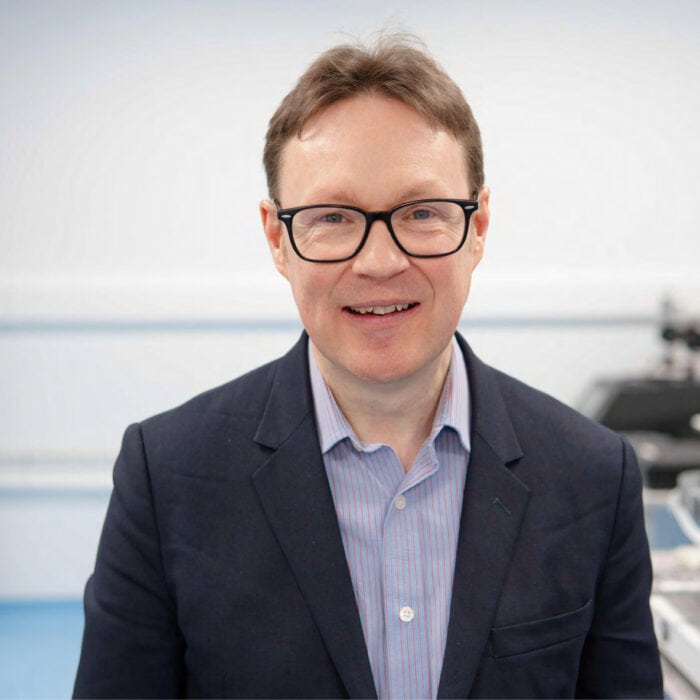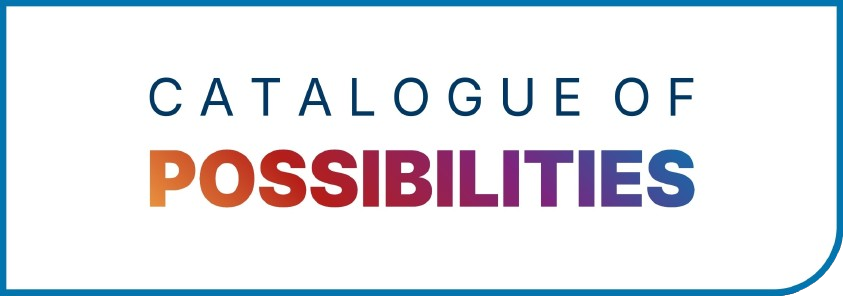Prof Douglas Paul he/him

Royal Academy of Engineering Chair in Emerging Technologies
Strategic Research Areas
I am passionate about developing multidisciplinary research in areas that ultimately deliver impact and benefit for society. My group employs micro- and nano-fabrication approaches working with researchers in many different fields to deliver miniature device and system technologies for a wide range of applications including position, navigation and timing, sensing, imaging and secure communications.
A few examples of multidisciplinary projects I have delivered include working with a gravitational wave physicist to produce the first MEMS gravimeters and working with chemists to produce a molecular flash memory combining molecules for the non-volatile memory function with silicon nanowires for readout and electronic integration. Almost all my projects are multidisciplinary and I am happy to use my knowledge around micro- and nano-fabrication to find solutions to problems and challenges in other research fields. My main focus at present is on quantum technologies for resilient position, navigation and timing aiming to solve the society dependence on Global Navigation Satellite Signals (GNSS) that 13 critical national infrastructures in the UK presently depend on. These include all electricity, communication and financial systems. I offer PhD projects in building chip-scale optical atomic clocks and trying to use light from photonic integrated circuits to trap, control and measure cold atoms for inertial sensing applications. My group also pioneered germanium on silicon single photon avalanche diode (SPAD) photodetectors and I offer projects aiming to develop these devices for single photon LiDAR systems for connected and autonomous vehicles and integrate them into photonic integrated circuits for quantum communications including quantum key distribution. Finally I am looking for students to develop MEMS gravity gradiometers, building hand-held sensors which are capable of measuring a person’s gravitational force from less than a meter away.
As a supervisor my door is always open to the inquisitive student but I also aim to educate independent researchers of the future not only with the fundamental underpinning knowledge to enable them to apply knowledge widely to many different problems but also with skills beyond the theory and laboratory that are essential for any successful academic or industrial career. For example, two of my students have been winners and finalists in many competitions on scientific outreach (including the Cheltenham Science Festival) and both myself and my group undertake significant science outreach with schools, the public and Government.
My previous students include Senior Lecturers at 3 different universities, three CEOs, a Director of a major research programme at ARM, a Head of Decision Sciences at Dixon Carphone, two patent lawyers and many working in industry as well as postdocs or lecturers in universities.
I have aimed to bring equality, diversity and inclusion to all areas where I lead or can contribute. As Director of JWNC, I first implemented procedures to enable wheelchair users and pregnant women to be able to safely use the cleanroom. My EPSRC programme grant is half senior and half early career researchers including 30% females (twice the physical sciences and four times the Quantum Technology Hub investigator average). I lead the UK Hub for Quantum Enabled Position Navigation and Timing which is 44% early career researchers (all work packages are led by early career researchers) and 22% females as investigators (both numbers significantly above the quantum averages across the UK programme). I enjoy the great energy, enthusiasm and innovate thinking from diverse teams working on multidisciplinary topics and I am keen to develop the workforce and scientific leaders of tomorrow.
When not being a chauffeur to my children or looking after my family, I still find time to play the piano and can be seen cycling around Glasgow at the weekends.

